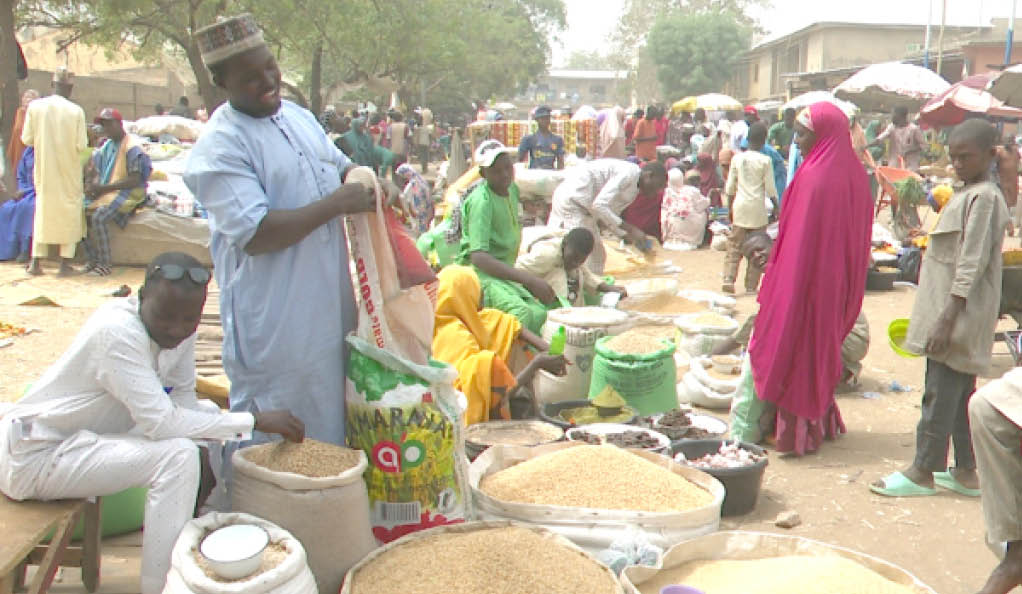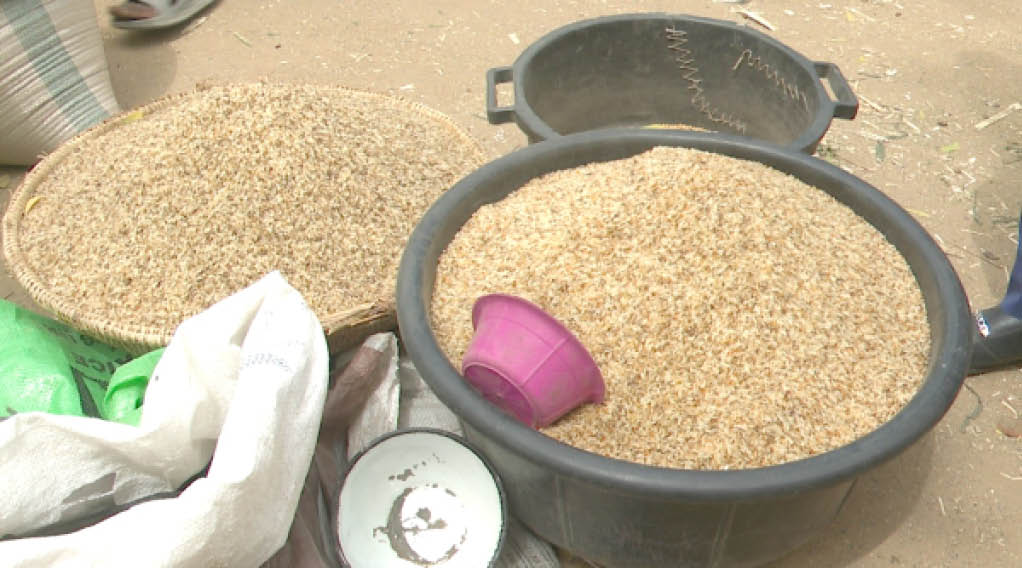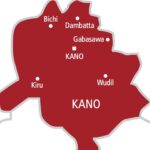With the rising cost of rice, which has become unaffordable for many low-income earners, some Kano residents now patronise factory rejected rice meant for livestock Daily Trust Saturday reports.
Daily Trust Saturday gathered that the low-grade rice locally called afafata now costs N40,000 per bag as against the price of premium rice currently put at N70,000.
Residents say they have no choice than to buy this low-quality rice considering the current high cost of living in the country.
Afafata in Hausa means to struggle. The sobriquet was given to this grade of rice by Kano housewives because of the hassles they go through in cleaning it before they can eventually cook it. This involves removing husk, sand, stones as well as several other dirts that could otherwise lead to health complication when consumed.
Be patient as we go through hard times, FG begs Nigerians
FG sets up investigative c’ttee on illegal organ harvesting
Afafata is sourced from rice processing mills and it’s usually used by poultry farmers. It is originally not meant for human consumption, however, the persistent high cost of rice has led many people in Kano to resort to patronising this kind of rice capable of causing health problems according to health experts.
Awwal Musa is a nutritionist in Kano. He said this grade of rice can lead to devastating health complications, especially if people continue consuming it. “The rice that people call Afafata and which is now widely eaten is rejected commodity from rice milling companies because it is not properly processed,” he explained.

Musa added that the rice lacks some basic nutrients which the human body requires, and so if people continue eating it, “they may be at risk of having kidney failure and skin diseases.”
Nevertheless, despite the health implications of consuming this grade of rice, traders continue to enjoy patronage in Kano with its sale gradually competing with that of the normal polished rice.
Sani Sahabi, a Kano resident, said it took his wife almost one hour to remove sand from the rice before she eventually cooked it and that they do buy the Afafata rice because it’s cheaper than the normal processed rice. “I came to this market to buy Afafata but I’m even surprise the supposed cheap rice is getting expensive. We buy it N1,800 and then work so hard to remove sand and clean it before we eat,” said Sahabi.
It was observed that the high cost of rice, which is about N3500 per mudu, has continued to force residents to go for Afafata which is sold for N1800 per mudu.
“This is rejected rice from the milling company which normally serves as poultry food but it’s now food for people who cannot afford to buy the normal rice. Many people come here to buy this rice,” said Ibrahim Anas, a trader.
According to another trader who preferred anonymity, low-income earners prefer to buy Afafata rice because of its low price even though they have to do extra work sorting it before they can cook it.
For many health experts, there is the need for government to, as a matter of urgency, provide a permanent solution to the current high cost of living, especially now that people have started consuming foods that are dangerous to their health.
Just last week, the Kano State Public Complaint and Anti Corruption Commission (PCACC) raided and sealed at least five warehouses at Dawanau in Dawakin Tofa Local Government Area stocked up with essential food commodities suspected to be hoarded.
No rice was found in any of the warehouses raided by the PCACC, raising fears among residents that the price of rice will continue to rise because of non-availability.
During the PCACC raid on warehouses, those found to be stocked with soya beans, sesame, wheat bran and okro seeds were spared. This, according to the commission, is because those items are not necessarily food consumed by the people on daily basis.
The commission also sealed a big warehouse stocked with guinea corn. The warehouse belongs to Rigasa Trading Company whose owner Muhammad Ahmad told the PCACC chairman that they were not hoarding food items but have been contracted by the United Nations to supply food to the insurgency-ravaged states of Borno, Yobe and Adamawa.
He said they have signed food supply agreement but incurred loss of over N300m because of price fluctuations at the moment.
Chairman of the commission Muhyi Magaji Rimin however said that the agency would leave no stone unturned in its battle against traders hoarding essential commodities.
“We have made impact arresting the rise of prices of essential commodities. Within a week, the price of rice jumped from N52,000 to N61,000. That was why we swung into action and were able to stop the continuous rise. If we sustain the tempo, we should be able to bring the prices down in no time,” he said.
“Each and every warehouse we entered claimed that it is world food program store. We wonder how world food program will starve the country and at the same time take the food to somewhere else,” Rimin Gado said.
“I assure you that after completing our investigation, we will file the case before the court, which will determine our next move.”
In the meantime, traders at the Singer Market in Kano have rejected alleged claims that they were involved in hoarding essential goods and commodities in warehouses.
One of the leaders of the traders Ibrahim Danyaro said, “We don’t hoard rice and other essential commodities. We have come with our receipts and invoices and they have understood clearly that we are not involved in that practice, we are just businessmen buying from manufacturers and we sell at the lowest price than any place you can think of in the state.”
Another trader Hamisu Rabiu said they would do everything possible to sustain the current price of goods and commodities, especially as the fasting period approaches.
“As we said, we are not responsible for the increased price, we are also battling with it. However, we will do our best in maintaining the current price. This is a promise, especially that now the fasting period is around the corner.”
When the Emir of Kano, HRH Aminu Ado Bayero, hosted Nigeria’s First Lady Senator Oluremi Tinubu in his palace, he seized the opportunity to ask her to remind the president that people are battling with hunger and starvation in Kano.
What the emir did not say, however, was that the situation has reached a level where people are now consuming Afafata rice, a rejected but cheap rice, at the detriment of their health.

 Join Daily Trust WhatsApp Community For Quick Access To News and Happenings Around You.
Join Daily Trust WhatsApp Community For Quick Access To News and Happenings Around You.


